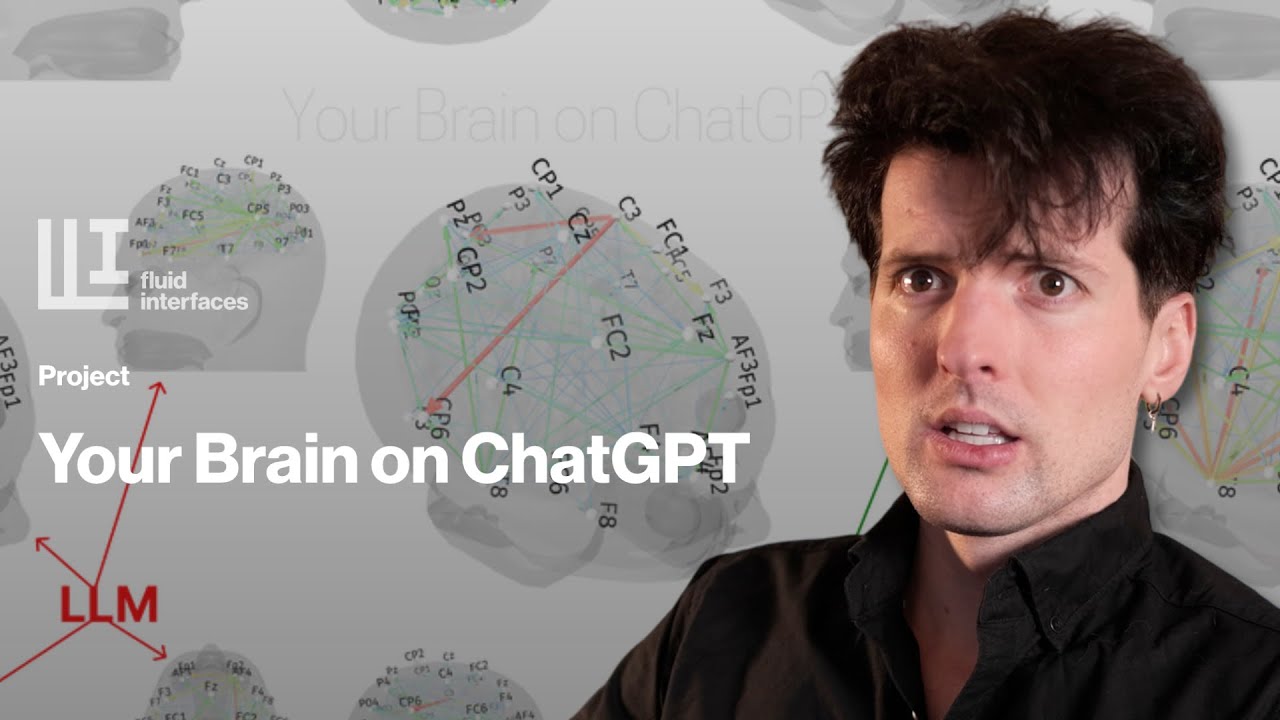The video examines an MIT study showing that heavy reliance on AI tools like ChatGPT for essay writing can reduce cognitive engagement and memory retention, though these findings are preliminary and context-specific. It emphasizes that AI does not inherently make us “dumber,” and its impact on cognition depends on how it is used, calling for responsible interpretation and further research.
The video explores a recent MIT study investigating whether the use of AI, specifically large language models (LLMs) like ChatGPT, impacts human cognitive abilities, particularly in educational contexts such as essay writing. While AI tools undeniably boost productivity in many fields, the study raises concerns about potential cognitive costs when relying heavily on AI for tasks that traditionally engage critical thinking and memory. The experiment divided participants into three groups—those using LLMs, those using search engines, and those relying solely on their brains—to write essays over multiple sessions, with brain activity monitored via EEG to assess cognitive engagement.
Key findings revealed that participants using LLMs exhibited weaker neural connectivity and lower cognitive engagement compared to those using search engines or no tools at all. The LLM group also showed less ownership of their essays and struggled more to recall or quote content they had just written, suggesting that heavy reliance on AI might reduce deep learning and memory retention. However, the study’s context was limited to essay writing on subjective topics, which may not fully represent other types of learning or tasks. The researchers emphasized that these results are preliminary and should not be generalized to all AI use cases or populations.
The video’s host reflects on personal experience with AI-assisted coding, noting that while AI reduces cognitive load on routine tasks, it allows more focus on higher-level problem-solving and creativity. This perspective highlights that AI’s impact on cognition depends heavily on how it is used—whether as a crutch that diminishes learning or as a tool that enhances productivity and understanding. The study’s design, including restrictions on tool usage and the nature of essay prompts, also influences outcomes, suggesting that more nuanced research is needed to understand AI’s broader cognitive effects.
Importantly, the MIT researchers caution against sensationalist interpretations of their findings. They explicitly advise against using terms like “dumb,” “brain damage,” or “harm” when discussing the study, underscoring that AI does not inherently make people less intelligent. Instead, the study serves as an early exploration into how AI tools might alter learning processes, with calls for further research involving diverse tasks, populations, and AI modalities. The video stresses the need for responsible reporting and thoughtful consideration of AI’s role in education and cognition.
In conclusion, while the MIT study indicates that heavy reliance on AI for essay writing may reduce cognitive engagement and memory retention, it does not prove that AI makes us “dumber.” The impact of AI on our brains is complex and context-dependent, shaped by how we integrate these tools into learning and work. The video encourages viewers to critically assess AI’s benefits and drawbacks, avoid alarmist narratives, and look forward to more comprehensive studies that will better illuminate AI’s cognitive implications.
You can find the MIT study titled “Your Brain on ChatGPT: Accumulation of Cognitive Debt when Using an AI Assistant for Essay Writing Task” by following this link:
